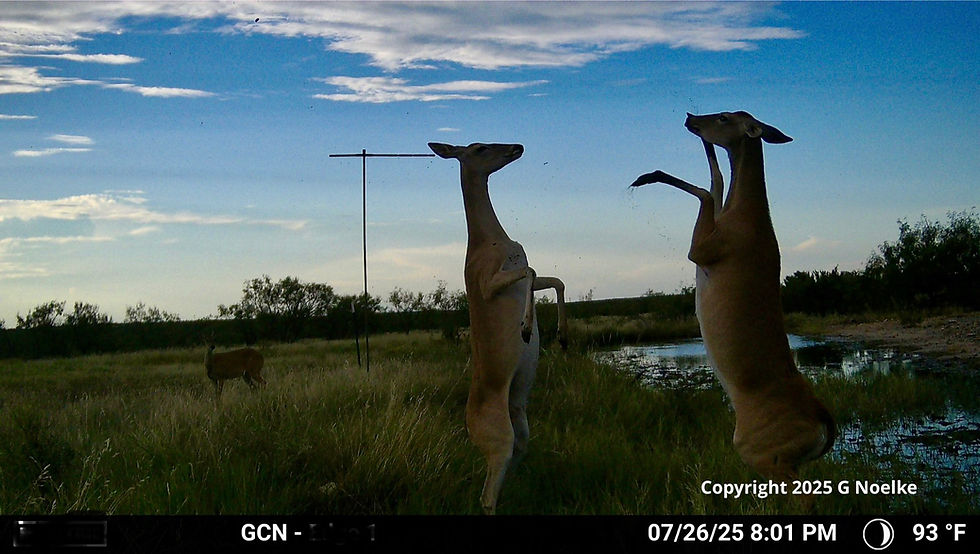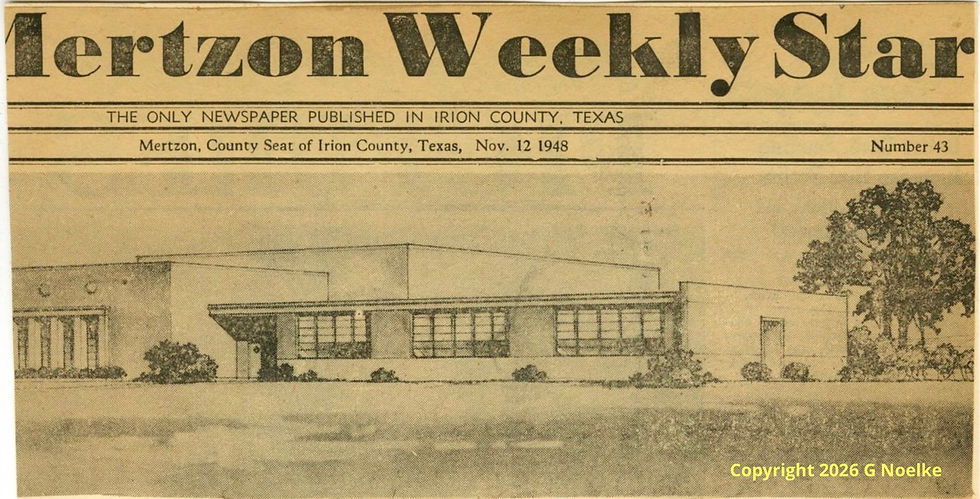New Laws 2025
- G. Noelke
- Aug 4, 2025
- 4 min read
| This page is being updated. First posting August 4, 2025. |

Here are some new Texas laws effective Sept. 1, 2025, related in some way to open government.
Response to the Public Information Act requestor, HB 4219: This new law is undoubtedly one of the most significant open government protections that has come around in decades. I will be doing a deep dive on this bill, so stay tuned. In the mean time, read it - I've linked it above.
School board meetings must be recorded, SB 413: Education Code 11.0621(c) and (d) were amended to require school boards to record each regular and special board meeting. The new provision also makes the recording available under the Open Records Act. This means the recording should be available "promptly" after the meeting. Here is my suggested language for a PIA request: "Please provide me a digital copy of the recording of the ____ISD board meeting held on ______, 2025. I am not requesting any recording of the closed session part of the meeting". Recordings of closed sessions, if done, are not subject to disclosure unless a court releases it. The new law doesn't address an executive session recording, but save time by not asking for it. You won't get it. I began audio recording school board meetings - and posting them on the internet - in the early 2000's. In time, that school district began to do video streaming, and many districts, including IC ISD (briefly), followed. Making audio recordings mandatory is a real plus for open government. It is also inexpensive; a school district can send you the file in a simple email, and they really shouldn't charge for it. (Though they can if they want to.)
Minutes for school board meetings, also SB 413: The new law at 11.0621(a) and (b) provides that the minutes have to show the attendance, what was voted on, how each member voted, and they must be posted on the district's website not later than 7 days after the meeting. I'm a bit confused on the seven day timing. Minutes have to be approved by the Board to become official, and the board can't approve minutes via email after the meeting to satisfy these provisions because that would be an unposted meeting and thereby be illegal under the Open Meetings Act. Read these provisions closely as there are two 7 day requirements. Seems to me the only safe way to read it is to interpret it as meaning "unofficial" minutes, because it is otherwise illegal to vote on them, officially, within 7 days without calling another meeting. Someone will help me explain this in time, I'm sure.
Time of posting, HB 1522: out with that pesky 72 hour notice, in with the much easier 3 business days. See 551.043(a). A regular school board meeting on Monday night should be posted by the Tuesday before, by my read of the Texas Code Construction Act.
New budget posting requirements, HB 1522: The Legislature has made it easier for taxpayers to understand a governmental body’s proposed budget. See new 551.043(c). Why you should care: I’ve said previously in these pages that understanding the budget is the best way to understand community values. So, for example, if our government leaders are comfortable with flooding citizens, then their budget will reflect that, Constitution be damned. These changes require a taxpayer impact statement and a copy of the proposed budget. More is needed, but this is a start.
Personnel Matters Veto, HB 2520: Gov. Abbott vetoed without a stated reason a bill, HB 2520, that would have made it unlawful to discuss, in closed session, operational issues that generally impact a class or group of employees, including changes in the duties or compensation of a class or group of employees . This veto is a significant loss to open government. My experience is that boards rely to heavily on the personnel matters provision; more of these discussions should be public, particularly as they relate to salary. The public needs to know about these very discussions, and it is a dark day now that Gov. Abbott has vetoed this bill.
More open government slaughter by veto, notice specifics, HB 2520: The legislature passed the following provisions that were critically needed for open government:
(b) The notice must include an agenda for the meeting that
is the subject of the notice that:
(1) is sufficiently specific to inform the public of
each subject to be considered in the open portion of the meeting,
including any matter:
(A) that is special or unusual; or
(B) in which the public may have a particular
interest; and
(2) describes any subject to be considered in the
closed portion of the meeting, if applicable.
Governor Abbott wrongly vetoed this language as well, and without a stated reason. Why you should care: current agendas are almost always too vague. I’ve seen the works, from an agenda that wasn’t clear about a school superintendent resignation (Ray DeSpain) to last month’s City of Mertzon’s posting that failed to specify they were closing an alley with an ordinance. More specificity in agendas is a must, and I can't imagine why Gov. Abbott would be so opposed to this sort of sunshine.
Pending.
Copyright 2025 G. Noelke





